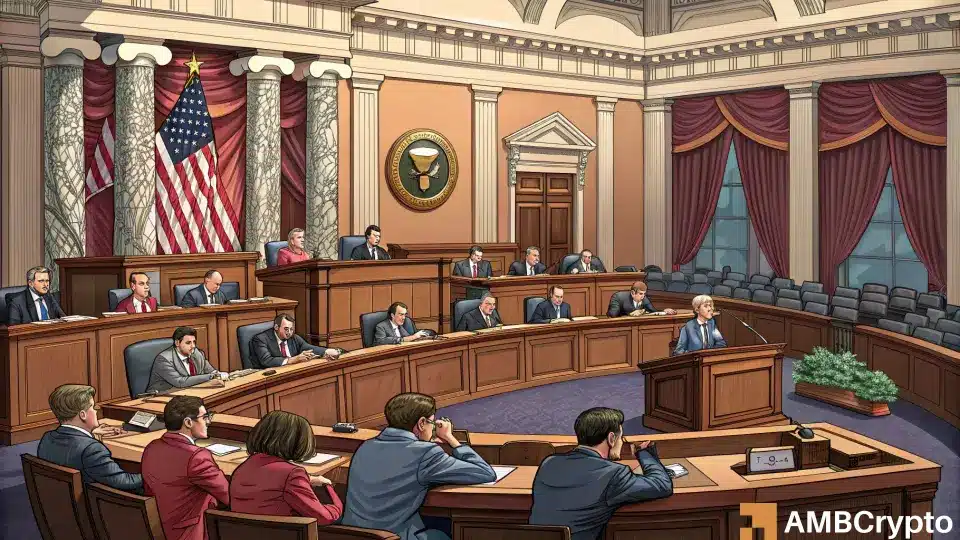Senate Democrats Propose Comprehensive Crypto Regulation in Response to Market Growth
In a significant move, 12 Senate Democrats have introduced a detailed framework to regulate the burgeoning $4 trillion cryptocurrency market. This proposal underscores the urgent need for clarity and accountability as digital assets continue to gain traction in the financial landscape. As the senators rightly put it, the crypto market is "too big to remain in limbo," and the new framework emphasizes investor protections, transparency, and tighter oversight.
Divergence from Trump’s Pro-Crypto Stance
The Democrats’ proposal stands in stark contrast to former President Donald Trump’s more laissez-faire approach to cryptocurrencies. While Trump has advocated for a streamlined crypto environment, focusing on innovation and minimal regulation, Senate Democrats argue for stricter oversight. They raise concerns about potential conflicts of interest linked to Trump’s family’s involvement in crypto ventures, prompting a more cautious legislative stance that prioritizes ethical standards alongside market development.
A Seven-Pillar Framework for Regulation
This seven-pillar framework represents the most comprehensive effort by Senate Democrats yet to codify guidelines around digital assets. The proposal aims to create a balanced regulatory environment that fosters innovation while safeguarding consumers. Key features include a classification system for decentralized finance (DeFi) participants, treating all protocol developers as intermediaries, and mandating Know Your Customer (KYC) checks for front-end service providers. Such measures aim to establish accountability for those operating within the decentralized space, which has been a major concern for both regulators and the public.
Concerns Over Market Structure
Despite the well-intentioned measures, some industry voices, like Jake Chervinsky, claim that the Democratic proposal could stifle innovation rather than promote it. He critiques that the suggested regulations might effectively act as a "crypto ban," leading to a detrimental impact on market structure. These dissenting opinions highlight the balancing act lawmakers face—striking a responsible approach to regulation without curtailing the very innovation that cryptocurrencies promise.
Political Standoff on Crypto Regulations
This proposal by Senate Democrats comes amid a broader political standoff regarding cryptocurrency regulations. In July, the House passed the Clarity Act, aiming to establish clear market rules, while Senate Republicans have fine-tuned their Responsible Financial Innovation Act (RFIA) to protect developers from overregulation. GOP leaders, such as Senator Cynthia Lummis, have expressed frustration over the Democrats’ slow engagement and attempts to implement tighter controls, indicating a partisan divide on how best to regulate this rapidly evolving sector.
Conclusion: The Future of Crypto Regulation
The introduction of this framework signals a turning point in the dialogue surrounding cryptocurrency regulation in the U.S. While Senate Democrats push for stricter oversight and consumer protections, the contrasting views from the GOP and industry leaders suggest that consensus on regulatory paths remains elusive. As regulators and lawmakers grapple with how to effectively oversee the digital asset landscape, the outcome will significantly influence both innovation in the sector and investor confidence moving forward. The ongoing discussions will be crucial in determining the future of cryptocurrency regulation in America, balancing the need for protection with the potential for economic growth.
















